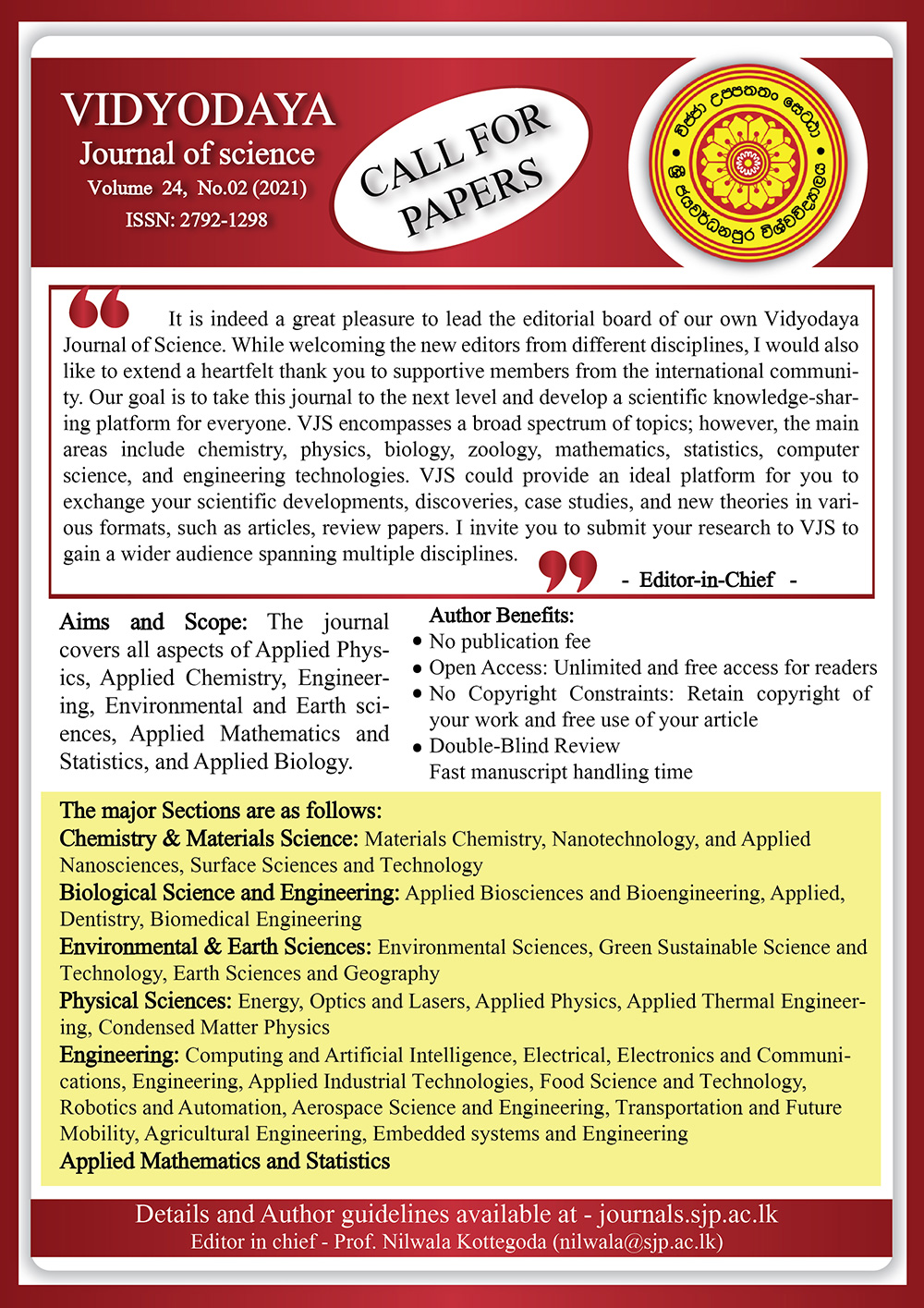Assessment of Atmospheric Deposition and Spatial Variability of Trace Metals in Kandy City and Suburbs using Bio-monitoring Technique in Mosses
DOI:
https://doi.org/10.31357/vjs.v21i1.3606Abstract
Deposition of atmospheric Trace metals (TMs) was investigated in this study through the analysis of mosses that have been grown at nine locations within the Kandy Municipal Council area and its suburbs. Hyophila sp. moss was selected for TM analysis with referring their common availability. After cleaning, dried mosses samples were digested with conc. HNO3 in microwave digesting system. Digested samples were analysed for Al, Cr, Mn, Fe, Ni, Cu, Zn, Cd and Pb using Inductive Coupled Plasma-Mass Spectrometry (ICP-MS). Average TM concentrations in mosses, were resulted with the order of Fe>Al>Zn>Mn>Cu> Pb> Cr>Ni>Cd. The highest and lowest metal concentrations were recorded for Al and Cd as 12,150 and 0.2 mg/kg respectively. Principle factor analysis suggested two major factors; vehicular emission and geographical location, responsible for the TM concentrations in mosses. Factor analysis indicated that approximately about 73% of the TMs in the atmosphere are by the two factors whereas majority from that to be from the vehicular emission. Apart from that, trans-boundary pollution could identify as one of the major factors for TMs in Kandy. Spatial distributions are not significant for the metals that have identified as geogenic origin and others were reported with clear spatial distribution with having highest accumulations in the areas those experiencing higher traffic activities. The ecosystem risk values are still in the acceptable levels in the means of trace metals in mosses.
Key words: mosses, bio-monitoring, trace metals, atmospheric deposition



